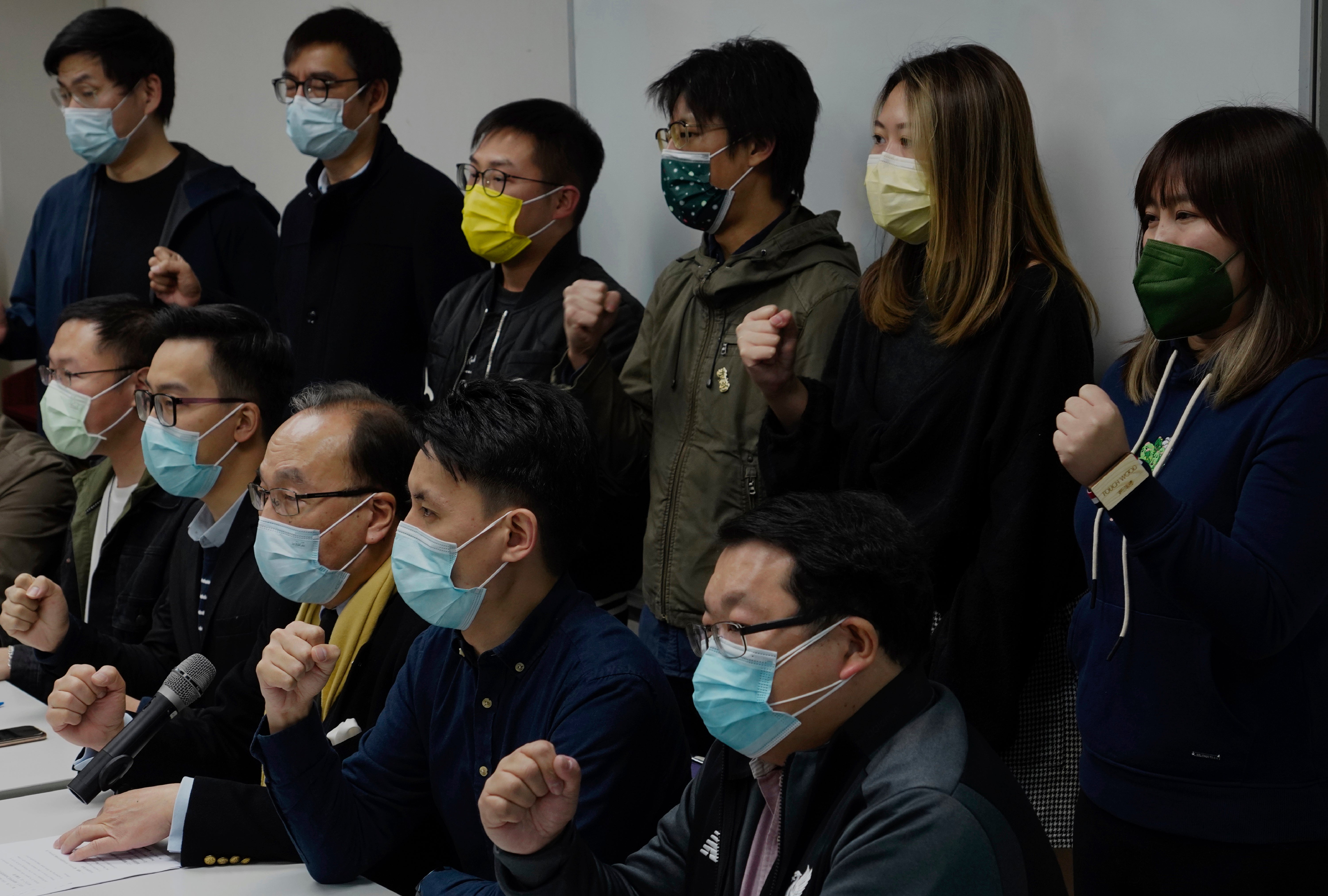‘From now on we live in constant fear’: Why the Hong Kong mass arrests signal dark days ahead
The latest crackdown by authorities has shocked even those used to the opposition being targeted, reports William Yang


Receiving news about the arrest of pro-democracy figures in Hong Kong isn’t something new to Avery Ng, the chairman of the League of Social Democrats. However, the news of the mass arrest of 53 pro-democracy figures in Hong Kong even came as an unpleasant surprise to him.
“We were already shocked by the increased crackdown taking place in Hong Kong since the implementation of the National Security Law, but today’s mass arrest is by far the most comprehensive political oppression,” Ng tells The Independent.
The activists, many of them current and former legislators or district councillors in the former British colony, were accused of committing “subversion of state power” by organising and participating in an unofficial ‘primary’ election for the opposition last year.
Hong Kong’s Secretary of Security, John Lee, claimed that the group planned to cause serious damage to Hong Kong society and said they were suspected of planning to paralyse the Hong Kong government.
However, in the eyes of experts, the mass arrest marks a new phase of Beijing’s crackdown on the semi-autonomous city that used to take pride in its level of freedom that’s unfound in other cities across the Chinese mainland.
“Before today, we saw the national security law being used to quell protesters or anyone who directly expressed their discontent towards Beijing,” says Lev Nachman, a PhD candidate at the University of California, Irvine, researching about Hong Kong and Taiwan. “But going after all pro-democracy figures who took part in the primary is qualitatively different because these aren’t protesters.”
Nachman says the mass arrest shows that Beijing is now going after anyone who is vaguely associated with the opposition in Hong Kong, and it also proves that any attempt to change Hong Kong from within the system is no longer possible. “If you belong to the pro-democracy camp and try to participate in formal politics, it will now be viewed as a crime in Hong Kong,” Nachman tells The Independent.
For those who have been involved in Hong Kong’s fight for democracy over the last few years, the mass arrest shows that the Chinese government can now lock anyone up under the National Security Law. “They want to blatantly show people in Hong Kong that from now on, we will have to live under constant fear,” said Ng.
“I don’t think there will be any meaningful and democratic election in Hong Kong from now on, not even at the district level. I think sooner or later, there will be another wave … targeting the remaining pro-democracy figures.”
With the channel of political participation being shut down, Ng thinks that the most direct way to keep the resistance alive is through street protests. However, following the implementation of the national security law, Ng notes that protesting on the street also comes with higher risks. “The risk of street protests is going to be much higher than two years ago,” Ng acknowledged. “It’s a very big challenge that we have to overcome as Hong Kongers, and there is no way to go around it.”
“Every day, I ask myself whether I should risk being arrested and keep protesting or not. I’m basically taking it a day at a time. The only reason why I wasn’t arrested today was because I was in jail for another case, which prevented me from running in the primary. We just don’t know when the Chinese government is going to come after us, so I think many of us in Hong Kong are now on an instinctive survival mode.”
As the red line for violating the national security law becomes more and more blurred, some who have left Hong Kong before the law came into effect thinks it’s important for Hong Kong people not to self-censor despite the suppressive political climate. “We have to keep the anger and discontent even if we can’t express our opinions in a political way,” says Nathan Law, the prominent activist who fled to the UK last year.
“We can do all sorts of things that can express our opinions more subtly, and for me, who is free from the direct threat of the national security law, I will continue to advocate for progressive policies towards China in order to hold them accountable.”
But Nachman emphasises that following the mass arrest, Hong Kong has now entered a new phase of “mainlandisation”, a process that sees Beijing exert greater control over Hong Kong politically, economically, socially and culturally.
“I think there is probably more scrutiny to daily activities in Hong Kong than in other places in China,” Nachman tells The Independent. “It feels like everything in Hong Kong is held under a microscope and Beijing wants to make sure that the process of ‘mainlandisation’ goes as smoothly as possible. We are so far along into the process that I question whether or not there is any hope about reversing the process at this point.”
Join our commenting forum
Join thought-provoking conversations, follow other Independent readers and see their replies
Comments



Bookmark popover
Removed from bookmarks